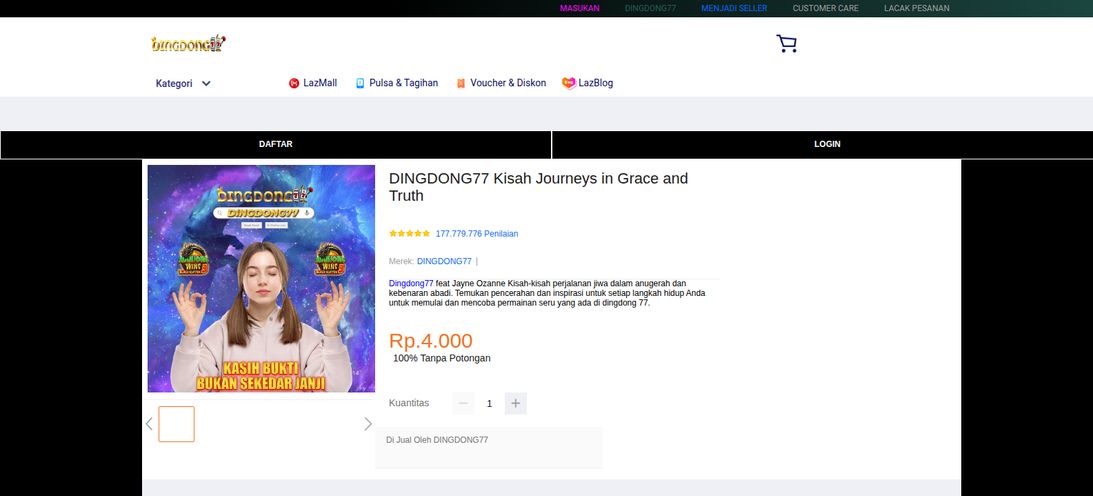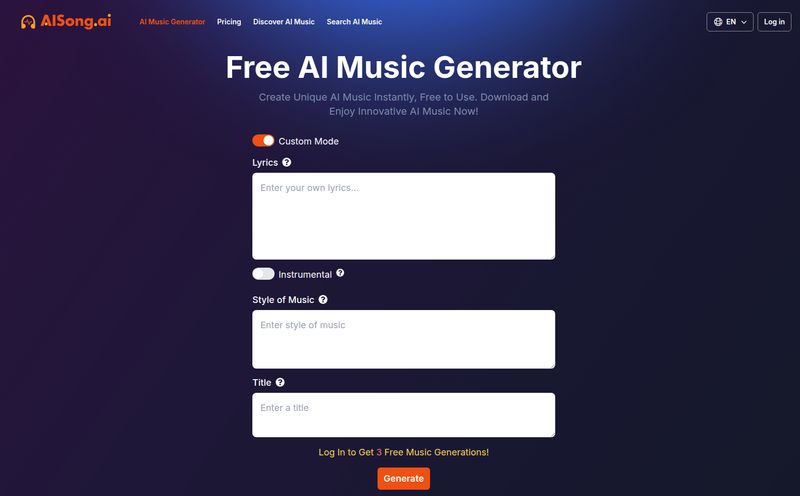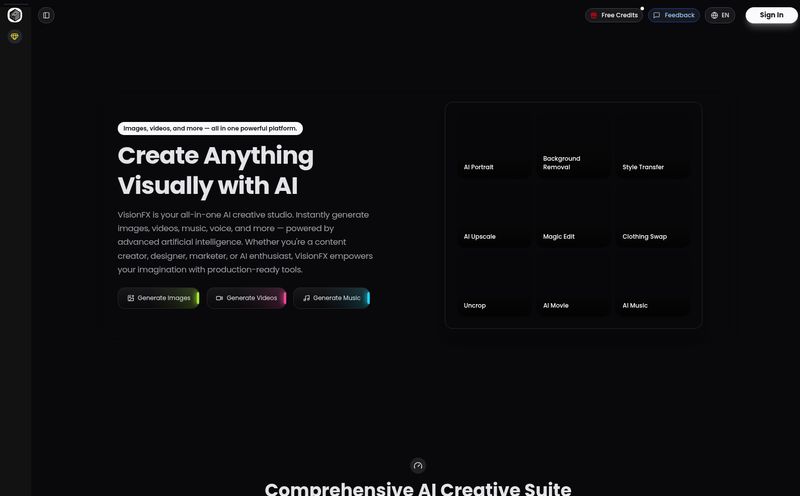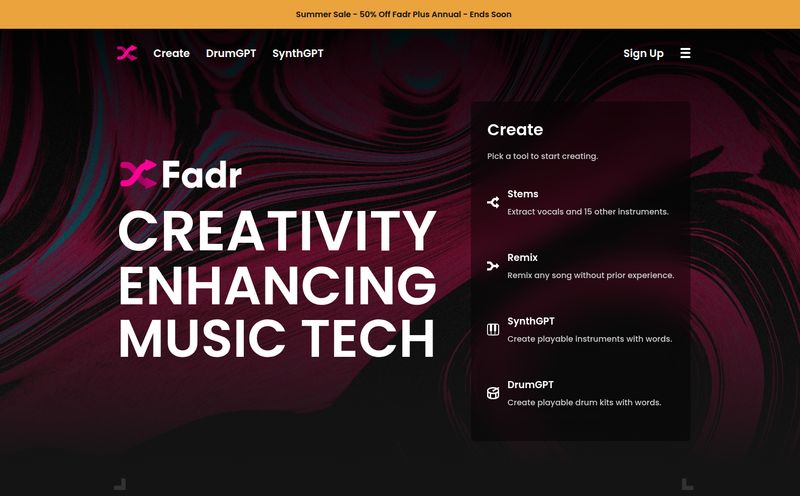If you're a content creator, you know the pain. You’ve just finished editing the perfect video, a masterpiece of cuts and pacing. Now, for the final touch: the music. And so begins the descent into the seventh circle of hell, also known as the “royalty-free music library.” You scroll through endless pages of cheesy corporate ukulele tracks and generic “inspiring emotional” piano loops. It’s a soul-crushing experience.
For years, I've been saying that AI was going to change this game. We’ve seen AI writers, AI image generators… music felt like the next, and perhaps most difficult, frontier. And now, the space is exploding. I've been keeping my eye on a few contenders, and one that recently popped up on my radar with some pretty bold claims is Music Muse. They're talking about turning simple text prompts into “chart-topping AI creations.”
Big words. So, as your resident SEO and traffic-gen guy who's seen it all, I had to see if it lived up to the hype. Is this just another tool, or is it the creative partner we've been dreaming of? Let's find out.
What Exactly is Music Muse? (The 30-Second Pitch)
Okay, so the elevator pitch is simple. Music Muse is an AI-powered platform that lets you generate surprisingly high-quality music from simple text prompts. You literally type out what you want, and it spits out a song. Think Midjourney, but for your ears.
But the feature that really grabbed my attention was their “Lyrics to Symphony” concept. The idea that an AI can analyze the emotion and rhythm of your words to create a fitting musical accompaniment... that's some next-level stuff. It's not just about making a beat; it's about interpreting a story. A very cool promise.
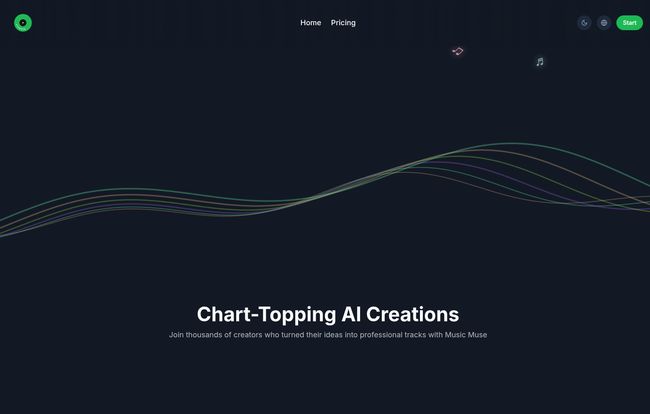
Visit Music Muse AI
Putting it to the Test: From Simple Prompt to Full Track
Talk is cheap, so I ran it through its paces. The platform promotes a simple three-step process, which, I'm happy to report, is actually as straightforward as they claim.
Step 1 - Describe Your Vision
You start with a prompt box. No confusing dials or music theory knowledge required. You can be as simple as, “Create an upbeat pop song about summer,” or get more specific. I’ve always felt the real test of these tools is their ability to grasp a specific vibe. So I tried something more my speed: “A moody, atmospheric lo-fi track with a slow tempo, perfect for a rainy night of coding.” You can guide the style, mood, and lyrics. It felt intuitive, not intimidating.
Step 2 - The AI Magic Happens
This is where you lean back and let the silicon brain do its thing. After you input your prompt, the AI gets to work. And I mean work. It claims real-time generation, and it's impressively fast. We're talking seconds, not the hours it would take me to noodle around in GarageBand and come up with something that sounds like a dying cat. The track comes to life with what they call professional arrangement and mixing. More on that in a sec.
Step 3 - Refine and Download
What comes out isn't necessarily the final product. You can fine-tune it, ask for variations, and adjust the mix. This is critical. A lot of generative tools are a one-and-done shot, but having the ability to iterate is what makes it feel like a creative tool rather than just a content machine. Once you're happy, you can export the track in various formats, ready to drop into your video editor, game engine, or whatever project you're working on.
The Standout Features That Caught My Eye
Beyond the basic workflow, a few things really stood out. The Multi-Genre Support is pretty wild. The site says it can do everything from classical to electronic, and in my limited testing, it held up. The moody lo-fi track I asked for was spot on. I even asked for a “cinematic orchestral score for a pirate ship battle” for laughs, and it was... honestly, not bad! A little generic, maybe, but totally usable for a YouTube short or a game prototype.
Then there’s the claim of Professional Quality. Let’s be clear. Is this going to put Grammy-winning mixing engineers out of a job? No. But is the output clean, well-balanced, and mastered to a modern loudness standard? Absolutely. For the 99% of us who need background music for online content, the quality is more than sufficient. It's a massive step up from the stuff you usually find in free-for-all libraries.
It’s like having a session musician on speed-dial who works for digital credits instead of coffee.
So, Who Is This Actually For?
Looking at the testimonials on their site, Music Muse is aiming for a wide audience, and I think they hit the mark. It isn't just for one type of creator.
- Content Creators & YouTubers: This is a no-brainer. The ability to generate unique, copyright-clear music that perfectly matches the vibe of your video is a game-changer. Ava Müller, a content creator, mentions this directly.
- Musicians & Producers: I was skeptical here, but I get it now. It’s an incredible tool for breaking writer's block or sketching out ideas. Liam O’Connor, an electronic producer, called it a “Game-changer for quick iterations.” You can generate a dozen musical ideas in the time it takes to make a cup of tea.
- Indie Game Developers: Custom soundtracks are a huge bottleneck and expense for indie devs. A tool like this, as mentioned by developer Olivia Patel, allows you to create and iterate on music that fits each scene's mood without blowing your budget.
- Absolute Beginners: And this is the big one. You don't need to know a single thing about music theory. You just need an idea. It truly lowers the barrier to entry for musical creativity.
Let's Talk Money: Music Muse Pricing Tiers
Alright, the all-important question. What’s it going to cost? The pricing structure is flexible, which I appreciate. They have a free tier and a couple of paid options, mostly based on a credit system.
| Plan | Price (Billed Yearly) | Credits | Best For |
|---|---|---|---|
| Muse Free | $0 /mo | 3 credits daily | Hobbyists and anyone who wants to try it out without commitment. |
| Muse Starter | $8 /mo | 30 credits monthly | Content creators or podcasters who need a few custom tracks per month. |
| Muse Pro | $24 /mo | 200 credits monthly | Power users, developers, and professional musicians who need a high volume of tracks and advanced features. |
Muse Free - The "Try Before You Buy"
You get 3 credits a day. The biggest catch is there's no commercial use license. This is purely for personal projects and figuring out if you like the tool. Fair enough.
Muse Starter - The Creator's Sweet Spot?
At $8 a month (billed yearly), this feels like the sweet spot for most content creators. You get 30 credits a month and, crucially, the commercial use license. This is likely the plan most YouTubers and indie marketers will gravitate towards.
Muse Pro - For the Power Users
For $24 a month, you get a hefty 200 credits, plus perks like high-speed generation, priority queue access, and unlimited storage. If you're a film composer like their testimonial Ethan Kowalski or a full-time game dev, this is probably your jam.
The Elephant in the Room: How Does it Stack Up?
No tool exists in a vacuum. The big question in their own FAQ is how it compares to competitors like Suno AI. While this isn't a direct head-to-head comparison, Music Muse seems to be focusing heavily on the workflow for creators and the quality of the final instrumental output, which is a smart niche.
And then there's the age-old argument: AI music lacks the soul of human composition. And you know what? Some might argue that, and they're not wrong. A machine learning algorithm doesn’t have lived experiences. But I think that misses the point. This isn't trying to replace a human artist pouring their heart out on a piano. It’s a tool for creating functional, high-quality, customized audio at scale. It’s about accessibility and efficiency, and on that front, it's a massive success.
Final Thoughts - Is Music Muse a Hit or a Miss?
After spending a good bit of time with it, I'm genuinely impressed. For me, Music Muse is a definite hit. Its a powerful tool that manages to be both incredibly simple on the surface and surprisingly deep once you start experimenting.
The ability to go from a simple sentence to a fully realized, downloadable track in under a minute is something that would have sounded like science fiction just a few years ago. It solves a real, tangible problem for a huge number of people in the creative industries.
It won't write the next Bohemian Rhapsody. But for a podcaster needing an intro, a YouTuber needing a background track, or a developer needing a placeholder score, it’s nothing short of revolutionary. It democratizes music creation, and that’s something I can always get behind.
Frequently Asked Questions
- How does Music Muse's AI song generator compare to Suno AI?
- While both are leaders in AI music generation, they have different strengths. Music Muse excels in creating high-quality instrumental tracks and custom arrangements tailored for content creators, developers, and producers. Suno is also incredibly powerful, often praised for its vocal generation. The best choice depends on your specific needs—instrumental focus vs. full songs with vocals.
- Is Music Muse really free? What are the pricing options?
- Yes, there is a Muse Free plan that gives you 3 credits daily for non-commercial use. For commercial use and more features, they offer the Muse Starter plan ($8/mo) and the Muse Pro plan ($24/mo), which provide more credits and advanced capabilities.
- Can I use Music Muse without any musical experience?
- Absolutely. That's one of its main selling points. The platform is designed to be used with natural language prompts, meaning if you can describe the music you want in words, you can create it.
- Can I really turn my written words into a full song?
- Yes, the "Lyrics to Symphony" feature is designed for this. The AI analyzes the sentiment, rhythm, and context of your lyrics to generate a musical accompaniment that matches your words.
- Can I use Music Muse as a beat maker or instrumental generator?
- Definitely. It's an excellent tool for this. You can specify genres like hip-hop, lo-fi, or electronic and describe the exact type of instrumental or beat you need, making it a powerful resource for artists and producers.
- Can Music Muse create songs based on specific artists?
- This is a tricky area for all AI tools due to copyright. Generally, you cannot prompt it to "create a song in the style of Taylor Swift." Doing so would infringe on copyright. Instead, you should describe the qualities of the music you want, such as "an upbeat pop song with acoustic guitar and a catchy chorus."
